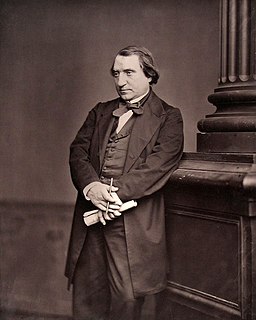A Quote by William Tyndale
Christ desires his mysteries to be published abroad as widely as possible. I would that [the Gospels and the epistles of Paul] were translated into all languages, of all Christian people, and that they might be read and known.
Related Quotes
The trouble with Christianity was that by about 150, there were hardly any Jews left in the Christian church, and so from that time until the last part of the twentieth century, the only people reading the gospels and interpreting the gospels and writing commentaries on the gospels were gentiles who were simply ignorant of the Jewish background, and I just thought they were prejudiced.
There is no figure who had more of an influence, no person had more of an influence on the intellectuals behind the Iron Curtain than Friedrich Hayek. His books were translated and published by the underground and black market editions, read widely, and undoubtedly influenced the climate of opinion that ultimately brought about the collapse of the Soviet Union.
One would naturally expect that the Lord Jesus Christ would be sufficiently important to receive ample notice in the literature of his time, and that extensive biographical material would be available. He was observed by multitudes of people, and his own followers numbered into the hundreds (1 Cor. 15:6), whose witness was still living in the middle of the first century. As a matter of fact, the amount of information concerning him is comparatively meager. Aside from the four Gospels, and a few scattered allusions in the epistles, contemporary history is almost silent concerning him.
The Old Testament records the preparation for the coming of the Messiah. The Gospels record the coming of the Messiah, Jesus Christ our Lord. The book of Acts records the propagation of the gospel (the good news) concerning Jesus Christ. The Epistles (letters) explain the gospel and its implications for our lives. The book of Revelation anticipates and describes the second coming of Jesus Christ and the establishment of His eternal kingdom. From beginning to end, the Bible glorifies Jesus Christ and centers on Him. Its Christ-centeredness is one of its wonderful features.
For Paul 'righteousness' and 'justice' are the same word, as they were in Hebrew. Paul clearly believes that helping the poor is a central and ongoing part of Christian commitment, precisely because in Jesus Christ God has unveiled and launched his plan for the rescue, redemption and renewal of the whole creation. Justification and justice go very closely together.





































